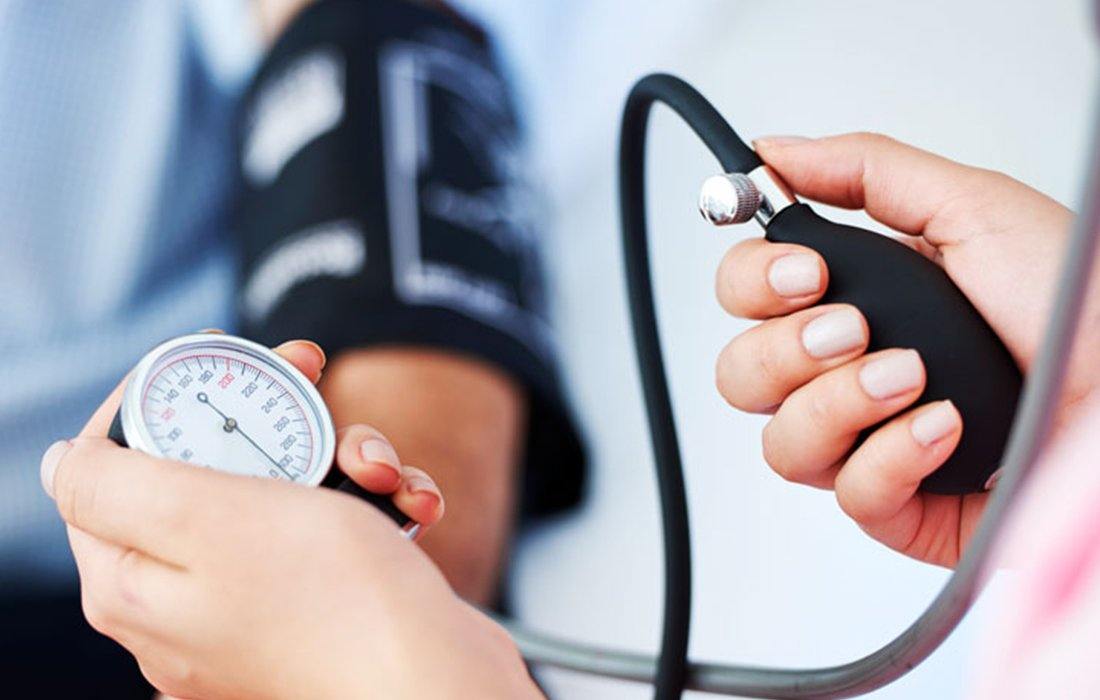What is high blood pressure?
Blood pressure is the pressure of the blood being pumped by the heart throughout the body in the arteries. High blood pressure occurs when the heart pushes blood hard into the arteries, while low blood pressure happens when the heart is relaxed1. A normal blood pressure level is less than 120/80 mmHg, while a high blood pressure is higher than 140/90 mmHg.
What happens if you have high blood pressure?
High blood pressure is a major risk factor for
- Heart disease
- Stroke
- Kidney disease
- Diabetes
- Eye disease
- Erectile dysfunction2
What causes high blood pressure?
The cause of high blood pressure is uncertain in most people. However, there are certain conditions and factors that are known risk factors for high blood pressure that include3:
- Lack of exercise (sedentary lifestyle)
- Poor diet
- Excessive salt intake
- Being overweight
- High blood cholesterol
- Family history of high blood pressure
- Diabetes
- Excessive alcohol consumption
- Smoking
How can I help to reduce blood pressure?
Diet
1. Reducing salt intake
The World Health Organization (WHO) strongly recommended that just by reducing salt intake we can help to decrease the number of deaths from high blood pressure, heart disease and stroke4. An easy way to do this is to reduce your use of table salt when cooking and avoid processed and take-away foods.
2. Eating a diet rich in fresh fruits and vegetables
Evidence suggests that a diet rich in fresh fruit and vegetables can reduce blood pressure. The Mediterranean diet is typically high in fruits, vegetables and healthy fats. A study conducted in Spain that included 4304 participants found that the Mediterranean diet has a potential blood pressure lowering effect, further supporting the famous proverb ‘eat ya veggies’5.
3. Increase fibre intake
Fibre is the indigestible parts of plant foods, such as vegetables, fruits, grains, beans and legumes. A review conducted by The University of York concluded that the increased consumption of dietary fibre may help to reduce blood pressure in people who suffer from high blood pressure6. The recommended daily intake of fibre is 25g per for females and 30g per day for males7. 100g of hemp hearts contains 12g of fibre and is a great way to increase your fibre intake.
4. Increase consumption of minerals (calcium, potassium and magnesium
A study conducted by The British Journal of Nutrition recommend an increased intake of calcium, potassium, and magnesium to aid in reducing high blood pressure8. Hemp seeds are a great source of three of the minerals with 100g of hulled hemp seeds containing the following:
|
Nutrient |
Average per 100g hemp hearts |
Recommended Daily Intake (RDI) |
|
Calcium |
70mg |
1000mg-1300mg/day |
|
Magnesium |
700mg |
320mg-420mg/day |
|
Potassium |
1200mg |
2800-3800mg/day |
5. Adequate protein intake
A study conducted by PLoS One explains that not only does protein intake improve blood pressure but was also found to be more effective in plant-based proteins. Hemp seeds are an excellent source of plant-based proteins and contain all 9 essential amino acids (the building blocks of protein)9.
100g of hemp protein powder contain a whopping 42.1g of protein! Protein requirements vary depending on your weight, gender, age and physical activity, however for the most people 1g per kg of bodyweight (eg. 70kg female = 70g protein) should be enough protein to produce a blood pressure lowering effect. 100g
6. Essential Fatty Acids
Essential fatty acids are fats that can’t be made in the body and must come from the diet that include omega 3 and omega 6 fatty acids. Hemp seed oil contains high amounts of linoleic acid (omega 6 fatty acid) and alpha-linoleic acid (omega 3 fatty acid) that can be beneficial in reducing high blood pressure. Gamma linoleic acid (GLA) also found in hemp seed oil is another type of omega 6 fatty acid that can produce anti-inflammatory effects that may prevent the increase of high blood pressure10.
Exercise
Exercise is one of the best lifestyle choices you can make to manage high blood pressure11. Recommendations in Australia suggest exercising 150 to 300 minutes (2 ½ to 5 hours) of moderate intensity physical activity or 75 to 150 minutes (1 ¼ to 2 ½ hours) of vigorous intensity physical activity, or an equivalent combination of both moderate and vigorous activities, each week. Starting to do any exercise is better than no exercise at all! Please consult with your doctor before commencing exercise.
Stress Management
Practicing mindfulness is another lifestyle intervention that may help to reduce blood pressure. An 8-week study conducted by the Journal of Human Hypertension found that the group that received mindfulness training had an improvement in blood pressure compared to the group that received no mindfulness training12.
One of the best ways to practice mindfulness is meditation. We recommend using popular guided meditation apps such as headspace, smiling mind, and calm.
Reduce alcohol intake and smoking
Excessive alcohol intake has been indicated to play a role in increasing blood pressure. One simple way to reduce blood pressure is to reduce your alcohol intake or abstain from alcohol13. Cigarette smoking is a powerful heart disease risk factor and smoking cessation is the single most effective lifestyle measure for the prevention of a large number of heart diseases including high blood pressure14.
**THIS IS GENERAL ADVICE AND NOT TO BE TAKING AS MEDICAL ADVICE
References:
- https://www.cdc.gov/bloodpressure/about.htm
- https://www.cambridge.org/core/journals/british-journal-of-nutrition/article/diet-blood-pressure-and-hypertension/65787549650984A2AFBB7A66AAB7A17A
- https://www.healthdirect.gov.au/high-blood-pressure-hypertension
- https://www.ncbi.nlm.nih.gov/pmc/articles/PMC4105387/#:~:text=They%20suggested%20that%20salt%20reduction,the%20non%2Dobese%20who%20benefited
- https://pubmed.ncbi.nlm.nih.gov/15333163/
- https://www.ncbi.nlm.nih.gov/books/NBK71466/
- https://www.nrv.gov.au/nutrients/dietary-fibre
- https://www.cambridge.org/core/journals/british-journal-of-nutrition/article/diet-blood-pressure-and-hypertension/65787549650984A2AFBB7A66AAB7A17A
- https://www.ncbi.nlm.nih.gov/pmc/articles/PMC2920332/
- https://www.sciencedirect.com/science/article/abs/pii/S0899900700005864
- https://academia.utp.edu.co/medicinadeportiva/files/2012/04/Exercise-and-Hypertension.pdf
- https://www.nature.com/articles/s41371-018-0130-6
- https://www.sciencedirect.com/science/article/abs/pii/S0140673681909958
- https://www.ingentaconnect.com/content/ben/cpd/2010/00000016/00000023/art00003







